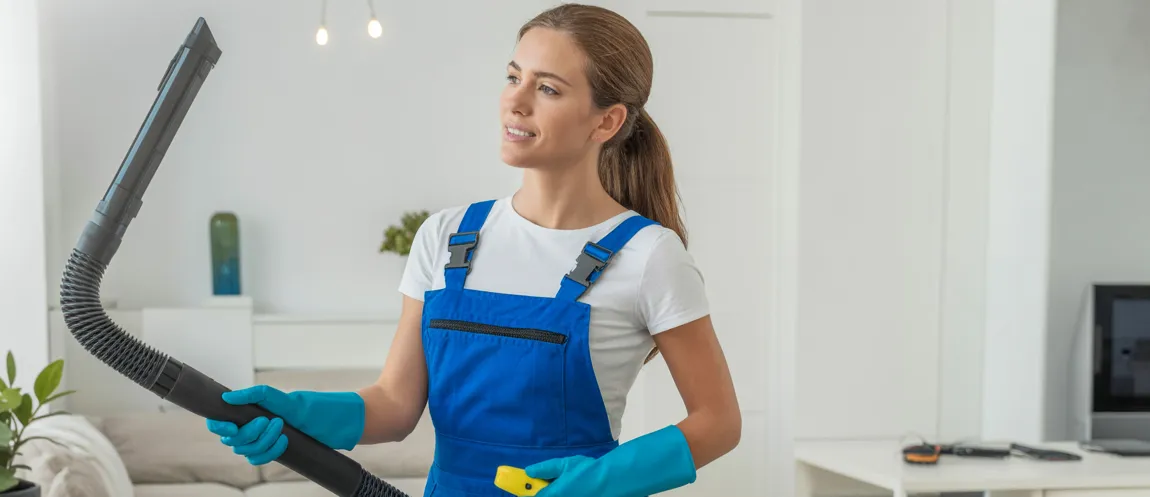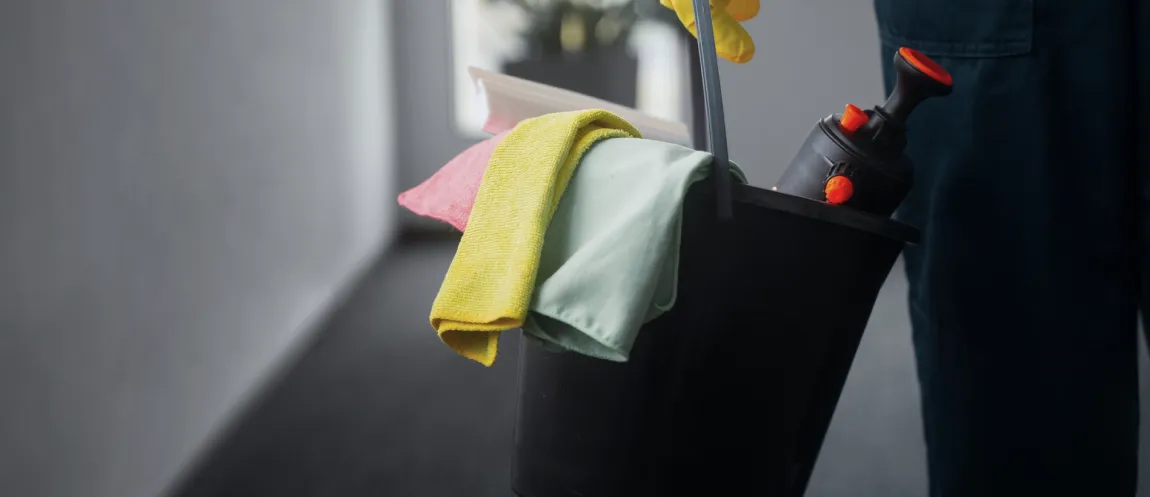When it comes to maintaining a clean office, the frequency of cleaning matters. The decision between daily, weekly, or monthly cleaning schedules can be daunting, but it’s crucial for keeping your workspace healthy, organized, and appealing. The right schedule depends on factors such as office size, foot traffic, employee count, and industry type.
For many businesses, opting for janitorial cleaning services provides a flexible and cost-effective solution to meet these varying needs. Professional janitorial cleaning teams can adjust the frequency and scope of their services based on your specific requirements, ensuring a consistently clean environment that boosts productivity and creates a positive impression for employees and visitors alike.
Key Factors Influencing Cleaning Frequency
The optimal cleaning schedule doesn’t have a one-size-fits-all answer. Several factors influence how often your office should be cleaned.
- Office Size and Layout: Larger or open-plan offices tend to accumulate dust and debris more quickly. The more space there is, the more often cleaning is required.
- Number of Employees and Visitors: High occupancy and frequent visitors directly impact cleanliness. More people mean more mess, which often requires more cleaning.
- Industry Type: Offices in healthcare, food service, or client-facing sectors have stricter hygiene standards. These environments might demand daily or multiple cleanings each day.
- Specific Cleaning Needs: Areas like restrooms, kitchens, and high-touch surfaces need attention more frequently than other spaces in your office.
- Budget: Cost plays a significant role in determining how often cleaning can be done. You need to balance cleanliness with your available resources.
Recommended Cleaning Schedules
Now that we know what affects cleaning frequency, let’s look at some recommended schedules and how they align with different office needs.
| Frequency | Typical Tasks | Best For | Pros | Cons |
| Daily | Emptying bins, wiping surfaces, vacuuming high-traffic areas, restroom/kitchen cleaning, disinfecting high-touch points | High-traffic offices, healthcare, food service, client-heavy environments | Maintains hygiene, reduces illness, always presentable | Higher cost, potential disruption |
| Weekly | Deep dusting, floor cleaning, sanitizing shared spaces, spot-cleaning upholstery | Moderate-traffic offices, professional services, standard corporate environments | Cost-effective, less disruptive, maintains cleanliness | Dirt/germs may accumulate between cleanings |
| Monthly | Deep carpet cleaning, window washing, air duct cleaning, floor waxing | Low-traffic offices, large spaces, budget-conscious businesses | Cost savings, thorough deep cleaning | Risk of clutter, less prevention of daily buildup |
Breakdown by Cleaning Frequency
Daily Cleaning
For businesses with a high volume of visitors, employees, or high-touch areas like restrooms and kitchens, daily cleaning is essential. Not only does it keep your office looking professional, but it also reduces the spread of germs and bacteria, improving employee health and productivity.
Weekly Cleaning
Weekly cleaning suits offices with moderate foot traffic. This includes tasks such as dusting shelves, cleaning windows, and sanitizing shared spaces. It strikes a balance between maintaining cleanliness and sticking to a reasonable budget.
Monthly Cleaning
For low-traffic offices or larger spaces, monthly cleaning provides a cost-effective solution. Tasks like carpet deep-cleaning and air duct maintenance can be handled monthly to maintain the property’s long-term health. However, it might not prevent the accumulation of dirt and clutter in between.
Area-Specific Recommendations
Different areas of your office may have different cleaning needs. Here’s a breakdown:
- Restrooms: These high-traffic areas should be cleaned daily, often twice a day, in busy environments.
- Kitchens/Breakrooms: Surface cleaning should be done daily, while a deep clean of appliances and counters can be done weekly.
- Reception and Common Areas: These spaces should be cleaned daily for a professional first impression, with a more detailed clean weekly.
- Workstations: Wiping high-touch surfaces daily and dusting surfaces weekly can keep workstations sanitary and fresh.
Signs You Need More Frequent Cleaning
If you notice any of these signs, it may be time to reconsider your cleaning schedule:
- Visible dust or dirt accumulating
- Persistent odors in the office
- Increased employee illness or complaints about cleanliness
- Overflowing trash or unclean restrooms
Regularly assessing these signs can help you adjust your cleaning schedule before problems worsen.
How to Choose the Right Cleaning Schedule
- Consider the office size and layout. Larger or open-plan spaces accumulate dust and debris more quickly, needing more frequent cleaning.
- Factor in the number of employees and visitors. High-occupancy areas require more regular attention, especially in shared spaces like kitchens and restrooms.
- Assess the industry requirements. Certain industries, like healthcare or food services, demand stricter hygiene standards and more frequent cleaning.
- Balance cost with cleanliness. Ensure the cleaning frequency fits your office’s needs without exceeding your budget.
- Choose a schedule based on traffic patterns. High-traffic areas (e.g., restrooms, kitchens) may need daily cleaning, while low-traffic areas can be maintained with weekly or monthly care.
- Ensure your cleaning provider offers flexibility. As your office needs evolve, you may need to adjust your cleaning schedule.
- Perform frequent assessments to ensure the chosen schedule meets the changing demands of your office.
Get Professional Help for Best Results
At DLL Cleaning Services, we understand that every office has unique cleaning needs. Let us help you design a cleaning schedule that keeps your workplace pristine and productive. Whether it’s daily, weekly, or monthly cleaning, our expert team ensures the highest standards for your office environment.
FAQs
How often should an office be cleaned?
1. How often should an office be cleaned?
The cleaning frequency depends on factors like office size, traffic, and specific cleaning needs. High-traffic offices might need daily cleaning, while others may only need weekly or monthly services.
Why is recurring office cleaning important?
2. Why is recurring office cleaning important?
Regular office cleaning ensures a hygienic and professional environment, which can reduce the spread of germs, improve employee health, and create a welcoming atmosphere for clients and staff.
What are the benefits of daily office cleaning?
Daily cleaning ensures a spotless office, reduces illness, and maintains a professional appearance at all times, making it ideal for high-traffic or client-facing businesses.
Can I adjust my cleaning frequency based on seasonal needs?
Yes, many businesses adjust their cleaning schedules during peak seasons or after events to ensure the office remains clean and organized
How do I know if I need more frequent cleaning?
If you notice excess dirt, odors, or increased employee complaints, it’s time to reassess your cleaning schedule to meet the growing needs of your office.




